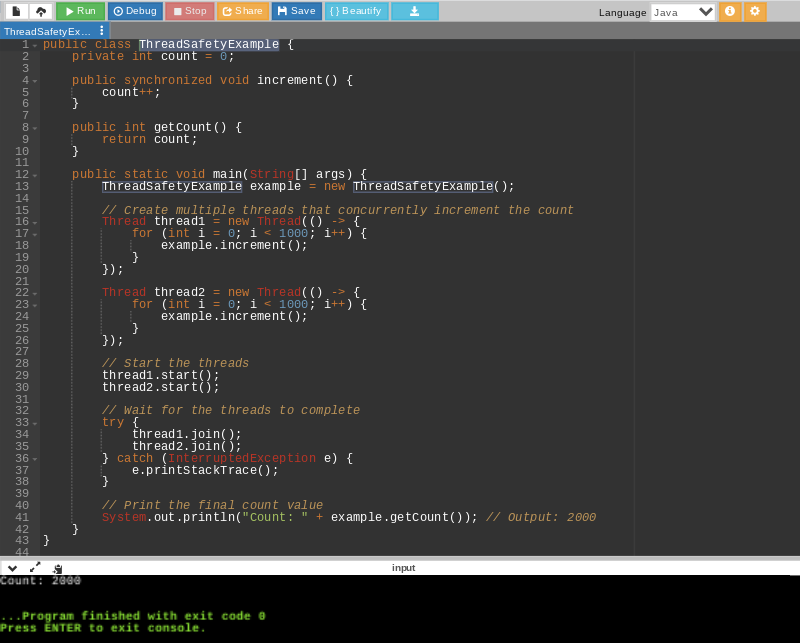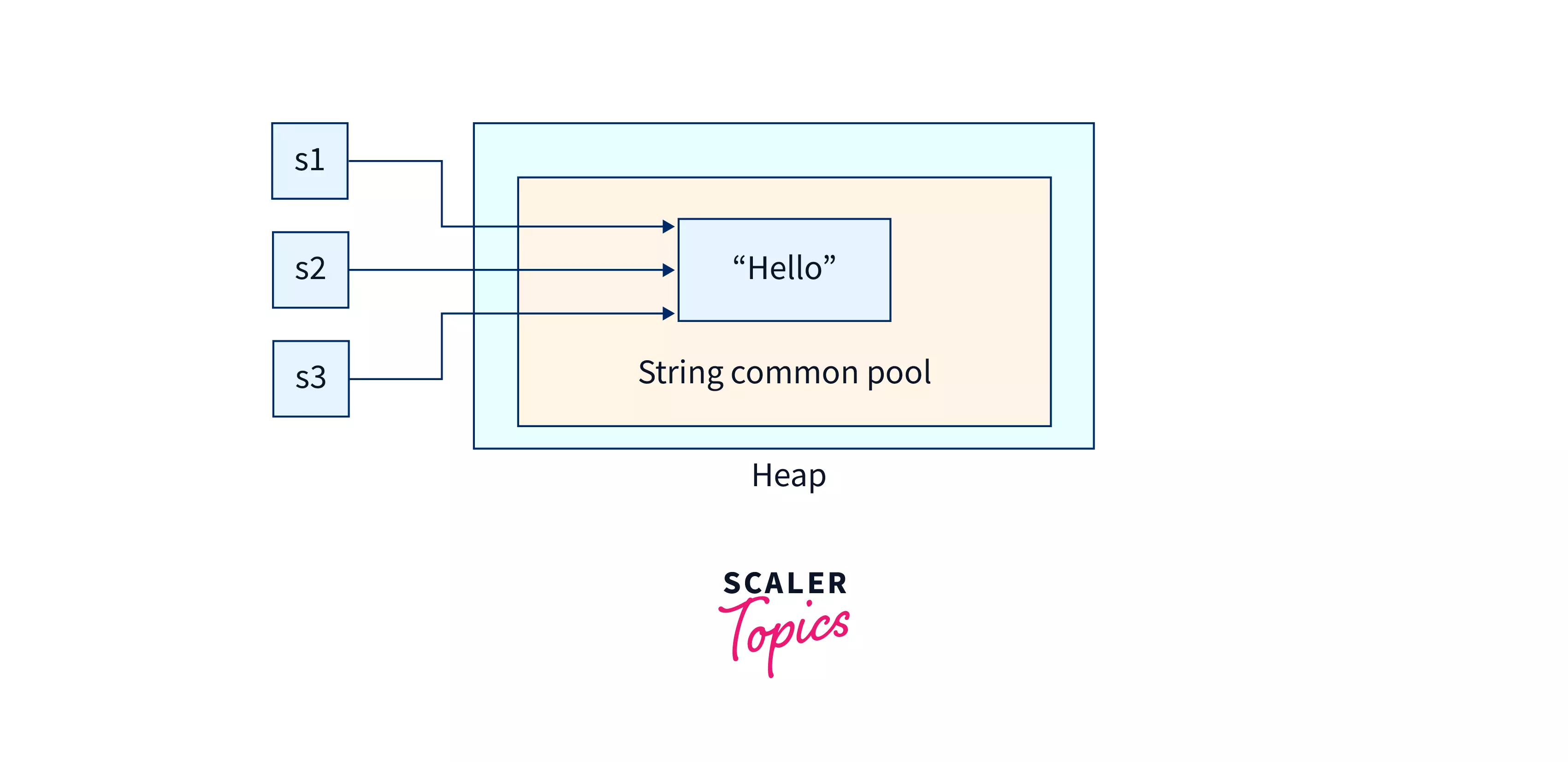Why Are Strings Immutable in Java? Insights into Memory Performance
Why Are Strings Immutable in Java? Insights into Memory Performance
Blog Article
What Is Immutable Strings and How It Functions
In the world of shows, recognizing the principle of unalterable strings is vital for creating durable and secure applications. Immutable strings refer to strings that can not be changed after they are developed, making certain information honesty and predictability within the code. This fundamental concept plays a critical duty in numerous programming languages and provides an one-of-a-kind approach to dealing with information. By checking out the ins and outs of how unalterable strings function, one can reveal a globe of benefits and possibilities that can elevate the high quality and effectiveness of software program growth.
The Fundamentals of Unalterable Strings
Immutable strings, as a basic idea in programs, are character series that can not be changed when they are created. This suggests that when a string is assigned a value, that worth can not be altered. In languages like Python and Java, strings are unalterable objects, leading to different implications in regards to memory management and data honesty.
Among the crucial benefits of unalterable strings is that they give a complacency in information adjustment. Since the material of an unalterable string can not be customized, it ensures that the original data continues to be intact, lowering the danger of unintentional changes throughout program execution (Why are strings immutable in Java?). This building additionally simplifies debugging procedures, as designers can trust that once a string is specified, its value will certainly not be inadvertently changed
When a new string is created based on an existing one, instead than changing the initial string, the brand-new value is kept independently. Overall, recognizing the essentials of immutable strings is vital for understanding shows ideas and optimizing code performance.
Benefits of Unalterable Strings
Building upon the safety and efficiency advantages of immutable strings, their advantages prolong to improving code integrity and streamlining concurrent programming jobs. By being unalterable, strings can not be modified after production, which removes the danger of unintended modifications in the data they store. This inherent immutability ensures that as soon as a string is developed, its worth continues to be consistent throughout the program's execution, lowering the opportunities of bugs triggered by unanticipated modifications.
In addition, immutable strings add to code reliability by making it easier to reason regarding the state of a program. Since strings can not be altered, designers can rely on that a string will constantly hold the exact same worth, simplifying debugging and maintenance initiatives. This predictability causes more trustworthy and steady codebases.

Implementation in Programming Languages
Within different programming languages, the unification of unalterable strings is a fundamental facet that affects how data is taken care of and manipulated within code frameworks. The implementation of unalterable strings varies across various shows languages, with each language providing its very own systems to sustain this concept.

On the other hand, languages like C and C++ do not have integrated support for immutable strings. Designers in these languages must manually apply immutability by implementing regulations within their code to avoid direct adjustments to string things.
Finest Practices for Functioning With Immutable Strings
When managing unalterable strings in programs languages like Java and Python, sticking to best practices makes sure efficient and protected data adjustment. Among the crucial best techniques is to make use of StringBuilder or StringBuffer instead of directly controling strings, specifically when taking care of extensive concatenation procedures. These classes offer mutable choices for string manipulation, helping to prevent unneeded memory allocations and enhancing performance.
An additional finest method is to make use of string interpolation or formatting works given by the language as opposed to manual concatenation. This not only enhances readability other however additionally aids in preventing usual challenges such as unintended string modifications. Furthermore, when dealing with delicate information such as passwords or API secrets, it is vital to prevent keeping them as simple message in immutable strings. Making use of safe and secure storage space devices like char selections or specialized libraries for managing sensitive information assists alleviate security risks connected with unalterable strings.
Real-world Applications and Examples
Discovering sensible implementations of unalterable strings in numerous industries discloses their considerable effect on data integrity and system reliability. In the healthcare sector, unalterable strings play a crucial function in ensuring the safety and security and privacy of client data. By preventing unapproved modifications to delicate details such as medical documents and prescriptions, unalterable strings aid preserve conformity with stringent privacy guidelines like HIPAA.
Financial institutions likewise profit from the unalterable nature of strings to improve the safety and security of customer information and transaction records. Unalterable strings aid avoid fraudulence and unauthorized modifications to monetary details, providing a durable protection versus cyber risks and making certain the trust fund and self-confidence of clients.

Conclusion
Ideal methods for functioning with immutable strings consist of avoiding straight modifications and making use of methods that return new string things. Real-world applications of immutable strings consist of information security, caching, and string control tasks.
Unalterable strings refer to strings that can not be modified after they are developed, making certain information honesty and predictability within the code. When a new string is developed based on an existing one, instead than changing the original string, the new worth is stored separately.In languages like Java and Python, strings are immutable by default, suggesting that when a string things is produced, its value can not be altered - Why are strings immutable in Java?. Finest techniques for working with unalterable strings consist of avoiding straight alterations and utilizing techniques that return brand-new string items. Real-world applications of unalterable strings include information security, caching, and string manipulation tasks
Report this page